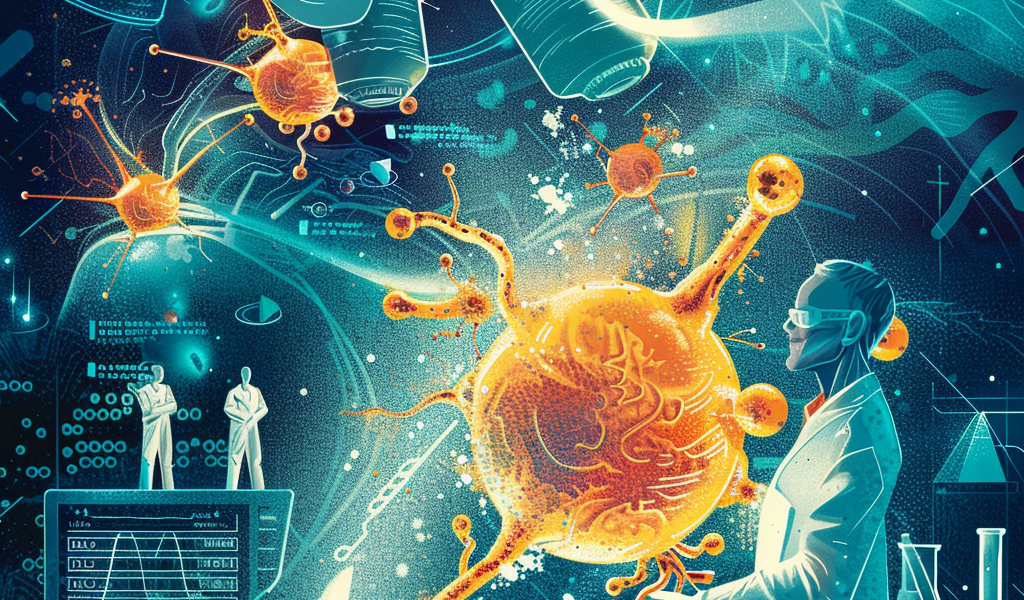Researchers from the National Institutes of Health (NIH) have unveiled groundbreaking insights into the role of mutant RAS genes in tumor growth, expanding our understanding of cancer biology. Published on November 11, 2024, in the journal Nature Cancer, this study reveals that mutant RAS genes not only signal at the cell surface but also play a crucial role in the transport of specific nuclear proteins, leading to uncontrolled tumor proliferation.
RAS genes are recognized as the second most frequently mutated genes in various cancers. Mutant RAS proteins are particularly notorious as key drivers of several aggressive cancers, including nearly all pancreatic cancers, approximately half of colorectal cancers, and one-third of lung cancers. For decades, research has established that these mutant proteins promote tumor growth by activating specific proteins at the cell surface, which continuously signal cells to proliferate.
This recent study marks a significant milestone as it is the first to demonstrate that mutant RAS genes can foster cancer development through a previously unrecognized mechanism. According to Dr. Douglas Lowy, deputy director of NIH’s National Cancer Institute (NCI) and one of the study’s authors, this discovery has the potential to enhance treatment strategies for cancer patients.
In the realm of cancer therapeutics, drugs targeting mutant RAS proteins have emerged in recent years, receiving approval from the Food and Drug Administration (FDA) for the treatment of lung cancer and sarcoma. Despite this advancement, the impact of RAS inhibitors on patient outcomes has been somewhat limited, with most patients experiencing only a few additional months of survival.
Dr. Lowy’s research team has a long-standing history of investigating RAS, contributing to early studies that identified RAS as a cancer-causing gene over 35 years ago. Their latest findings indicate that mutant RAS is directly involved in the release of a nuclear protein known as EZH2. This protein is transported from the nucleus to the cytoplasm, where it plays a pivotal role in the degradation of a tumor suppressor protein called DLC1.
By inhibiting mutant RAS, researchers were able to prevent the release of EZH2, thereby restoring the activity of DLC1. This restoration is crucial, as DLC1 functions to suppress tumor growth. In experiments conducted using human lung cancer cell lines and mouse models, the team observed that combining RAS inhibitors with other targeted cancer drugs that reactivate DLC1’s tumor suppressor capabilities resulted in a significantly stronger anti-cancer effect compared to using RAS inhibitors alone.
Moreover, the study suggests that the mechanism identified may not be exclusive to lung cancer. Evidence indicates that mutant RAS proteins could be performing a similar function in various other cancer types, pointing towards a broader implication of this discovery across different malignancies characterized by RAS mutations.
As the scientific community continues to explore the complexities of cancer biology, these findings open new avenues for research and treatment. The ability to target multiple pathways simultaneously could lead to more effective therapeutic strategies, ultimately improving outcomes for patients battling RAS-driven cancers.
In summary, the research conducted by NIH highlights the multifaceted role of mutant RAS genes in tumor growth, underscoring the importance of continued exploration in this field. The potential for developing combination therapies that leverage the newly discovered mechanisms associated with mutant RAS could pave the way for significant advancements in cancer treatment.





